
Weight loss and aging contribute to loss of elasticity and flabby skin. Tightening skin by non-surgical or medical means requires optimal nutrition in a form easily absorbed by the body. Juicing releases the nutrients locked in fibers of fruits and vegetables while also releasing vitamins and minerals from the peels and seeds that are usually discarded. Scott Ohlgren of macrobiotics.com indicates that hardly any digestive work is needed to process the raw, enzymatically active liquid of juiced vegetables.
Flabby Skin
Lifestyle, diet and heredity contribute to the breakdown of collagen and elastin in skin that leads to loose, flabby arms, face and body. Avoiding excessive amounts of sunlight, staying hydrated and consuming a healthy diet are all indicated for maintaining youthful, supple skin. Extreme weight gain or pregnancy may lead to separation of muscle tissues, allowing skin to sag. Repair of muscle and connective tissues takes time and requires optimum nutrition along with exercise to tighten flabby skin.
Drink the Alphabet
Vitamins A, B-complex, C, E and K are cited as the most biologically active vitamins for skin tone and tightening. Vitamins C and E combat free radicals that break down the skin's support structure, collagen and elastin. Vitamins A and K promote skin health and encourage collagen and elastin production to tighten skin. The B-complex provides coenzymes that promote the function of other vitamins and minerals. Usually destroyed by cooking, the B-complex becomes available by juicing raw vegetables.
Wheatgrass
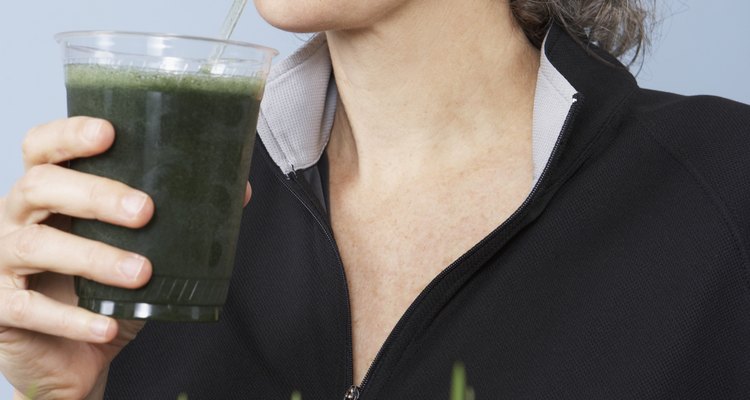
Wheatgrass contains substances that make cells grow younger instead of older, according to Li Smith, author of "Wheatgrass: Superfood for a New Millenium" and contributor to the website omplace.com. Smith reports that chlorophyll along with anti-aging nutrients turns back the clock on aging skin when used regularly. Juicing wheatgrass in your home blender is accomplished by washing the grass and then adding enough water to facilitate blending. After straining the liquid from the pulp, the liquid may be sweetened with honey for consumption and the pulp may be rubbed on the skin for added benefit.
Warnings
According to the Harvard School of Public Health, juicing increases the glycemic index of fruits because the fruit sugars are more readily available. The HSPH recommends consuming fruits whole, rather than juicing. The U.S. Food and Drug Administration warns against purchasing unpasteurized juices due to the possible contamination with bacteria. Preparing your own vegetables and fruits for juicing at home reduces the risk of foodborne bacteria when an acidic wash is used.
Related Articles

Nutrition Information on Blueberries
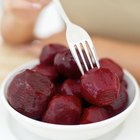
How to Boil Beetroot
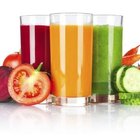
Nutrition Drinks for Diabetics

How Does Brewer's Yeast Benefit Skin?
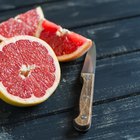
What Are the Benefits of Grapefruit for ...

Vitamins for Mental Alertness

How to Juice a Daikon Radish

How to Juice for Colon Health

How to Use Wheatgrass for Washing Hair
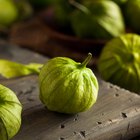
What Are the Health Benefits of ...

Is Wheat Grass an Alkalizing Food?
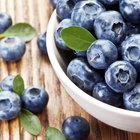
The Carbohydrates in Blueberries

Can You Shrink Pores Using Vegetables?

How to Reduce Acne Inflammation

Are the Nutrients Lost in Slow Cooking?

Lack of Nutrients and Flaky, Dry Skin
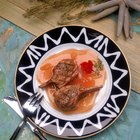
How to Make a Fruit Reduction
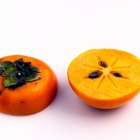
What Are the Benefits of Persimmons?

How to Freeze Broccoli

Zinc & Copper for Aging Skin
References
- Medical News Today: New Role of Vitamin C in Skin Protection Revealed by Study
- University of Texas Health Science Center at Houston: Health Leader: Aging Skin
- U.S. Food and Drug Administration: Talking About Juice Safety: What You Need to Know
- Om Place: Wheatgrass: A Chest of Remedies for Health and Beauty
Resources
- The Wheatgrass Book: How to Grow and Use Wheatgrass to Maximize Your Health and Vitality; Ann Wigmore
- Nutra Ingredients: Vitamin K Shows Potential in the Fight Against Wrinkles
- NPR: What Does It Take to Clean Fresh Food?
Writer Bio
For Judy Kilpatrick, gardening is the best mental health therapy of all. Combining her interests in both of these fields, Kilpatrick is a professional flower grower and a practicing, licensed mental health therapist. A graduate of East Carolina University, Kilpatrick writes for national and regional publications.
Photo Credits
Comstock Images/Comstock/Getty Images